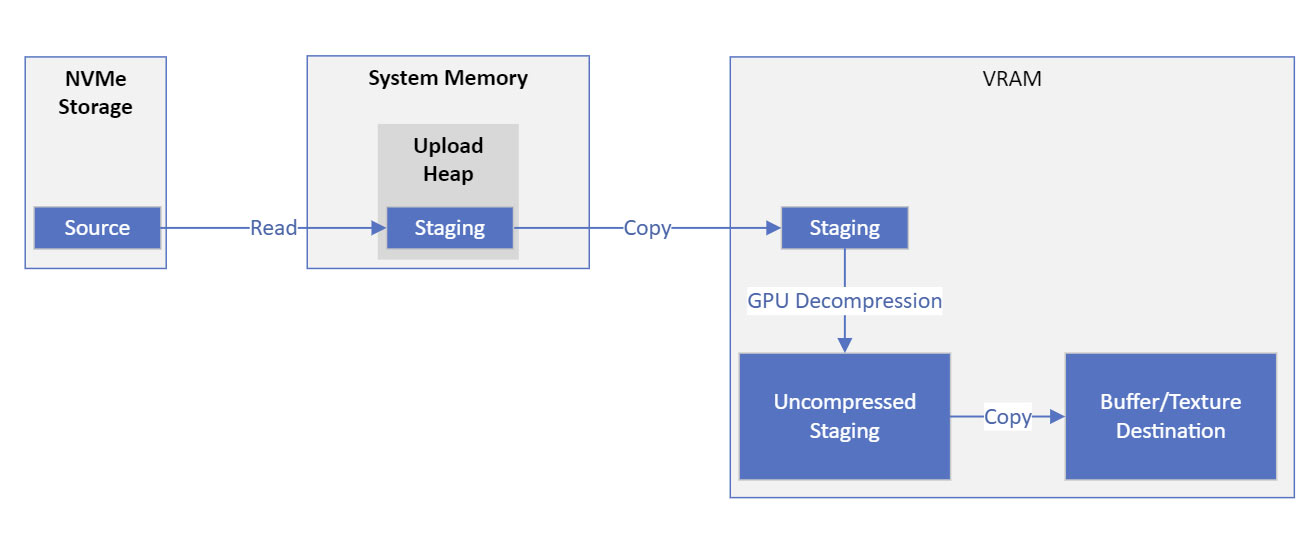it will be up to individual games to implement DirectStorage to see the benefits of the API.
That means not only using the necessary API hooks, but also shipping games with assets packed using the new
GDeflate algorithm. The vast backwards compatibility of GDeflate means that game devs can essentially hit the ground running here on DX12 games – anything worth running a new game on is going to support DirectStorage and GDeflate – but the fact that it involves game assets means that full DirectStorage support cannot be trivially added to existing games. Developers would need to redistribute (or otherwise recompress) game assets for GDeflate, which is certainly do-able, but would require gamers to re-download a large part of a game.
So gamers should plan on seeing DirectStorage 1.1 arrive as a feature in future games, rather than backported into existing games.



